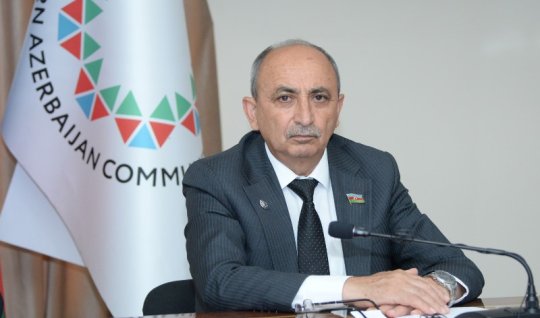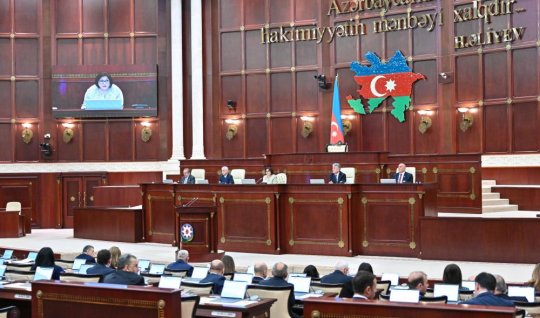Transport concessions for schoolchildren and pensioners may be granted

In many countries, schoolchildren, pensioners, and war veterans use public transport either for free or at discounted rates. In most countries, this system has long been established and is widely applied.
In Azerbaijan, however, the situation is completely different. The practice of using discounted terms is not recalled in our country. Although the Ministry of Digital Development and Transport increased fares on the metro and buses a few days ago, it did not offer any discounts to anyone.
Participants in recent discussions on social networks and among the public suggest that at least schoolchildren and elderly pensioners should receive discounts on transport.
Can this socially demanded proposal be heard? Is it possible to apply discounts on public transport for school-aged children and pensioners in Azerbaijan?
Modern.az sent an inquiry to the Azerbaijan Land Transport Agency (AYNA) to clarify the aforementioned issue.
In response to our inquiry, it was stated that a complete transition to cashless payments in public transport must be ensured for the application of discounted fares. According to information provided by the agency, the issue of applying these discounts can only be considered after a full transition to cashless payments is ensured.
“The tariff change accelerates the transition to a payment system that ensures cashless payment of fares for entities performing passenger transportation,” AYNA stated.
Deputy Chairman of the Milli Majlis Human Rights Committee, Arzuxan Alizade, confirmed that this issue is frequently encountered in international practice. According to him, various discounted categories exist abroad for students, pensioners, and school-aged children, allowing them to use transport under special conditions.
“Different approaches exist in this area in various countries. The application of such discounts in our country is both possible and desirable. This is especially relevant given the recent decisions to increase transport fares. Fare increases are implemented to renew transport infrastructure, increase accessibility, and create additional financial opportunities related to other issues.”
The deputy emphasized that currently, only children under 5 years old use public transport free of charge:
“However, the application of discounts is also desirable for schoolchildren over 5 years old, students studying in vocational and higher education institutions, as well as pensioners. Previously, such discounts existed for labor and war veterans, allowing them to use transport for free.”
The deputy chairman stated that in many countries, monthly and annual discounted subscriptions are offered for such social groups, allowing them to benefit from this opportunity throughout the year:
“I believe that this initiative should also be implemented in our country, and it is important both for ensuring social justice and for facilitating the use of public transport by low-income segments of the population.”
Our interviewee also added that he expects this issue to be on the agenda during upcoming budget discussions:
“I hope that the institutions leading the transport sector, the Tariff Council, and the government will also consider this issue and a positive decision will be made. It is important to emphasize that the application of such social discounts is not only desirable but also necessary for the low-income segment of the population to use public transport comfortably and accessibly,” A. Alizade noted.
-
00:47, Bu günIsrael was reportedly holding secret meetings with this country
-
00:31, Bu günWho do the Turks consider friends? – Azerbaijan is FIRST
-
7 December 2025, 23:51Ukrainians are rapidly leaving the country
-
7 December 2025, 23:40Syrians celebrated the overthrow of Bashar al-Assad - PHOTOS
-
7 December 2025, 22:31Israel will not allow Hamas!
-
7 December 2025, 21:21Hamas announced its main condition
-
7 December 2025, 19:50Volkan Demirel resigned
-
7 December 2025, 19:33Netanyahu will not leave politics
-
7 December 2025, 18:07Netanyahu wants to meet with Trump
-
7 December 2025, 15:41Russia has attacked Ukraine - casualties reported
-
7 December 2025, 15:28A new war hotbed in the world – danger increases
-
7 December 2025, 14:50China and Russia started joint missile exercises
-
7 December 2025, 13:26The Ukrainian army liberated this territory
-
7 December 2025, 12:15Trump awarded Hollywood stars - PHOTOS
-
7 December 2025, 11:41Accusation from China: Japan interfered with military exercises
-
7 December 2025, 09:24Fire at a nightclub in India - THERE ARE FATALITIES
-
6 December 2025, 22:40We have reached an agreement with America - ZELENSKY
-
6 December 2025, 21:40Armenia and Azerbaijan border guards have removed helmets and bulletproof vests - PASHINYAN
-
6 December 2025, 20:00Ukraine no longer believes in empty promises
-
6 December 2025, 19:20“I am a 'Grey Wolf' and I will die this way! - Bağçalı
-
6 December 2025, 17:32In Russia 1 percent of men “DISAPPEARED”
-
6 December 2025, 17:13Negotiations concerning Gaza are passing through a decisive stage
-
6 December 2025, 16:51Will Putin's arrest warrant be annulled?
-
6 December 2025, 14:22Turkey–Azerbaijan energy corridor will provide incredible benefits - US Ambassador
-
6 December 2025, 13:50Horrific accident in Turkey - 6 people DIED
-
6 December 2025, 12:48Second Chernobyl?
-
6 December 2025, 09:15Ukraine's Commander-in-Chief Opposed Territorial Concession
-
6 December 2025, 08:26Students in Germany protested - “We don't want to be soldiers”
-
5 December 2025, 22:15The resolution of the Ukraine conflict is imminent...
-
5 December 2025, 19:43Assad's allies are preparing for rebellion
























































